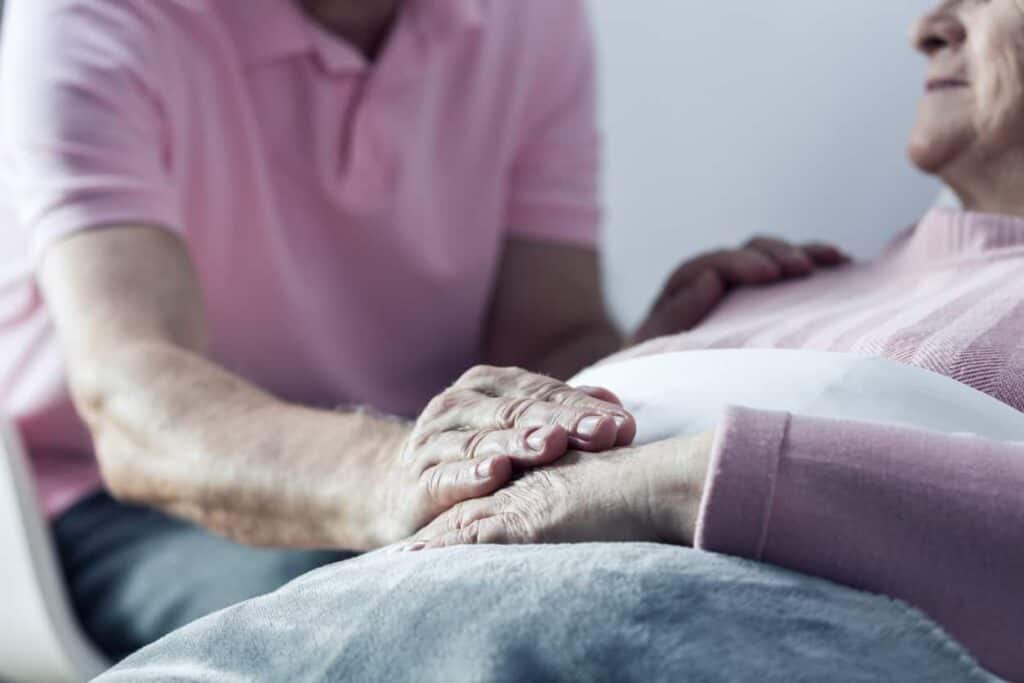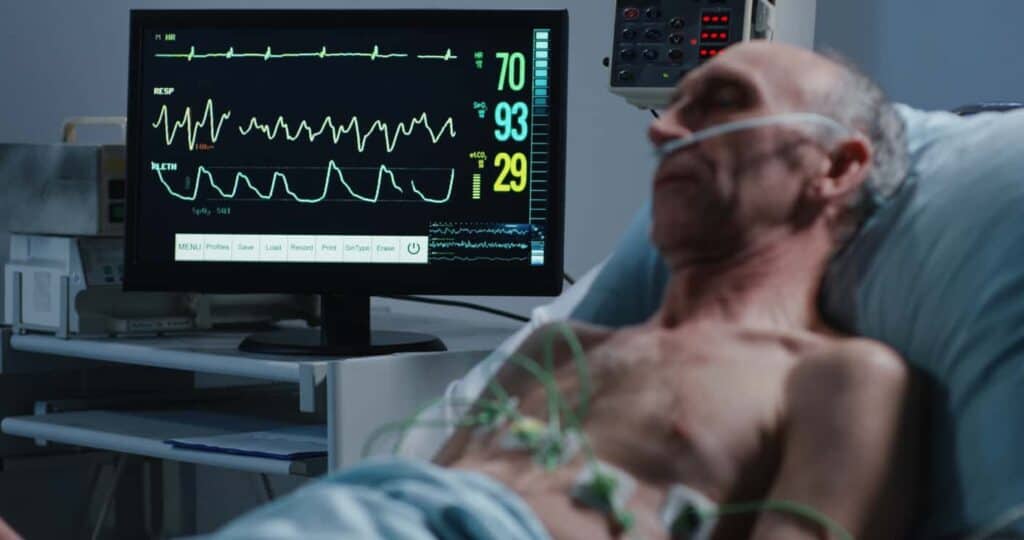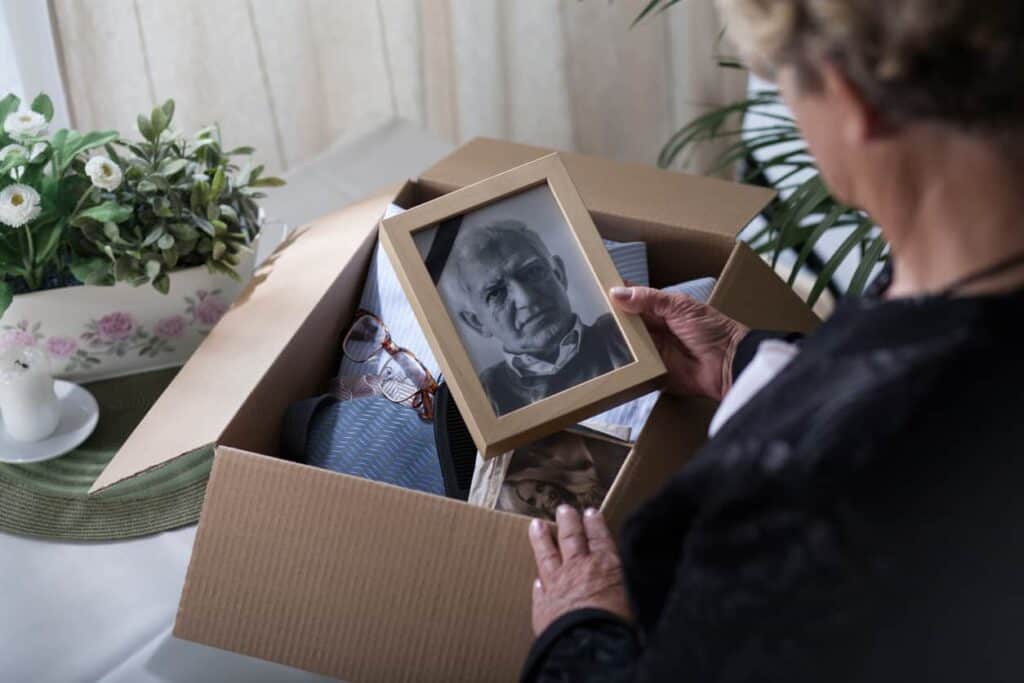Death is always hard to deal with. During a time as tough as this, it can be difficult to know what to do or how to feel. But having the knowledge that your loved one is nearing the end of their life can give you time to prepare, find comfort, and seek relief.
In this article, you will find the signs that someone is close to dying, both physically and emotionally. We also share some ways of coping and taking care of your loved one during this challenging stage. And finally, you will learn how professional caregivers can help you and your family cope when a loved one is near death.
Five Reasons Why It Is Important To Know When A Loved One Is Near Death
Being aware and able to inform other family members when a loved one is near death can help your loved one be understood, supported, and in dignity during this sacred time.
Preparation and Planning
Knowing that a beloved is near death will allow your family members to prepare themselves emotionally and mentally for the inevitable loss. It will give you and them time to make any necessary arrangements, such as notifying other family members, arranging for caregiving or hospice care services, and making decisions regarding end-of-life care.
Emotional Support
Being aware that a loved one is nearing the end of life will allow you to offer appropriate emotional support. You and the rest of the family can spend quality time with the person, express their love and gratitude, and provide them with comfort and companionship during this difficult time.

Closure and Farewell
Knowing that death approaches enable family members to say their final goodbyes and express any unresolved feelings or sentiments they may have. This can be incredibly important for both the dying senior and their loved ones, as it provides a sense of closure and allows for meaningful farewells.
Decision-making
Understanding that a loved one is close to death will permit family members to make informed decisions about care and treatment preferences. This may include decisions about pain management, life-sustaining interventions, and other aspects of end-of-life care that align with the wishes of your dying beloved.
Spiritual and Religious Needs
For many people, the end of their life is a deeply spiritual or religious experience. Knowing that a loved one is in their last final hours will prompt family members to provide spiritual support and assistance in fulfilling any religious or cultural rituals or practices that are important to the dying person.
Having enough time before the end for meaningful connections and ensuring that the needs and wishes of your dying loved ones are respected and addressed appropriately depend on you recognizing that death is close.
The Signs And Stages Of Transitioning To Death
The process of transitioning to death for elderly individuals can vary widely depending on factors such as underlying health conditions, individual resilience, and the specific circumstances surrounding their end-of-life care. However, there are some common signs and stages that are often observed:
Pre-active Phase of Dying
This stage can last for weeks to days before death and is characterized by subtle changes in the person’s physical, emotional, and mental state.
Signs may include:
- Increased fatigue,
- Decreased appetite,
- Withdrawal from social interactions,
- Confusion,
- Restlessness, and
- Changes in sleeping patterns.
Active Phase of Dying
This stage typically occurs in the days to hours leading up to death and involves more pronounced physical and physiological changes. Common signs during this stage include:
- Decreased responsiveness – Your loved one may become less responsive to stimuli and communication.
- Changes in breathing patterns – Their breathing may become irregular, shallow, or labored, and periods of apnea (temporary cessation of breathing) may occur.
- Decreased circulation – The skin of your beloved may appear pale or mottled, and their extremities may feel cool to the touch.
- Changes in consciousness – The person may drift in and out of consciousness or experience periods of delirium.
- Incontinence – Loss of bladder or bowel control may occur.
- Restlessness or agitation – Some people may exhibit restlessness, agitation, or terminal agitation, which can be distressing for both the senior and their loved ones.
Terminal Restlessness
Some individuals may experience a phenomenon known as terminal restlessness, which involves increased agitation, confusion, or emotional distress in the final hours or days of life.
Various factors, including pain, metabolic changes, medication side effects, or psychological factors, can be the cause of this.
Moment of Death
The moment of death is marked by the cessation of vital signs, including breathing and heartbeat. This may be followed by a final exhalation or gasp, and the person’s body may appear relaxed or peaceful.

It’s important to note that not everyone will experience all the signs or stages listed above, and the progression of dying can vary widely from person to person. Additionally, not all seniors will exhibit obvious signs of impending death, as some may experience a relatively sudden decline or unexpected event.
If you are caring for an elderly loved one who is nearing the end of life, it’s essential to communicate openly with their healthcare providers, hospice team, or other support services to ensure that their needs are being met and that appropriate care and comfort measures are in place.
Physical Signs That Death Is Near
As someone approaches the end of life, several physical signs may indicate that death is close by. Naturally, not everyone will experience all of these signs, and the timing and progression of the symptoms can vary from person to person.
Some relatively common physical signs that death is near may include:
- Changes in Breathing – Your loved one’s breathing pattern may become irregular, shallow, or labored in the final hours or days of life. Breathing may also become noisy due to congestion or the accumulation of secretions in the airways.
- Decreased Consciousness – They may become increasingly drowsy, unresponsive, or difficult to awaken as they near death. They may drift in and out of consciousness or experience periods of delirium.
- Decreased Circulation – Their skin may appear pale with a bluish or purplish hue, cool, or mottled as blood circulation slows down. Their hands and feet may feel cold to the touch.
- Changes in Heart Rate and Blood Pressure – As the body’s systems begin to shut down, heart rate and blood pressure may decrease. The pulse may become weak or irregular.
- Incontinence – Loss of bladder or bowel control is expected as the muscles relax in the final stages of life.
- Restlessness or Agitation – Some individuals may experience restlessness, agitation, or terminal agitation in the final hours or days of life.
- Decreased Appetite and Thirst – Your beloved may lose interest in eating or drinking as their body’s metabolism slows down. They may also have difficulty swallowing.
- Changes in Body Temperature – The body’s ability to regulate temperature may be impaired, leading to fluctuations in body temperature. The person may feel cold to the touch or develop a fever.
- Changes in Pupil Size – The pupils may become dilated and less responsive to light as death approaches.
You should strive to provide comfort and support to your loved one as they near the end of life, addressing any physical symptoms or discomfort they may be experiencing.
Hospice or palliative care services, such as Amy’s Eden Senior Care, can offer specialized support and assistance to both the dying person and their loved ones during this time.

Emotional Signs of Approaching Final Moments
In addition to the physical signs, there are also emotional and psychological signs that may indicate that death is near for an individual. These signs can vary widely from person to person, and not everyone will experience all of them.
- Withdrawal– Your loved one may withdraw from social interactions and become a lot less interested in activities or events that they once enjoyed.
- Increased Emotional Sensitivity – Some individuals may become unusually more emotionally sensitive or reactive as death approaches. They may experience heightened feelings of sadness, anxiety, or fear.
- Regrets or Reflections – It’s common for people nearing the end of life to become more reflective and introspective. They may express regrets about past actions or unresolved conflicts and seek opportunities for reconciliation or closure.
- Acceptance – As death draws nearer, your beloved may reach a state of acceptance or peace regarding their impending death. They may express a readiness to let go and be more focused on saying goodbye to loved ones and preparing for the end.
- Spiritual or Existential Concerns – Many individuals grapple with spiritual or existential questions as they approach the end of life. Your beloved senior may seek comfort in religious or spiritual beliefs, discuss the afterlife, or express a desire for meaning and purpose in their final days.
- Seeking Closure – Your loved one may express a strong desire for closure in their relationships and may want to resolve any lingering conflicts or unfinished business before they die.
- Expression of Love and Gratitude – In the final stages of life, many of us feel compelled to express our love and gratitude to our family members, friends, and caregivers. Similarly, your loved one may express appreciation for the support and care they have received and express their love for those closest to them.
- Sense of Completion – For some, nearing the end of life brings a sense of completion or fulfillment. They may feel satisfied with their life’s accomplishments and ready to transition to whatever comes next.
It’s important to recognize and validate the emotional experiences of a loved one nearing the end of life, providing them with opportunities for open communication, emotional support, and compassionate care.
Coping Strategies for Caregivers
Caring for a loved one who is dying can be emotionally and physically draining. It’s essential for you as a caregiver to prioritize self-care and seek support to cope with the challenges you may face. Some steps you can take in that regard could be to:
- Seek Emotional Support
Don’t hesitate to reach out to friends, family members, or support groups for emotional support. Talking about your feelings and experiences with others who understand or have gone through the same can provide comfort and validation.

- Take Breaks
It’s essential to take regular breaks from caregiving to rest, recharge, and attend to your own needs. Consider enlisting the help of other family members, friends, or professional caregivers to provide respite care.
- Practice Self-Care
Make time for activities that bring you joy and relaxation, such as hobbies, exercise, meditation, or spending time in nature. Taking care of your physical and emotional well-being is essential for maintaining your resilience as a caregiver.
- Educate Yourself
Learn as much as you can about your loved one’s illness, symptoms, and end-of-life care options. Knowledge can empower you to make informed decisions and provide better care for your loved one.
- Communicate Openly
Maintain open and honest communication with your loved one about their wishes, preferences, and concerns regarding their end-of-life care. Having these conversations can help ensure that their wishes are respected and followed.
- Accept Help
Don’t be afraid to accept help from others when it’s offered. Allow friends, family members, or volunteers to assist with caregiving tasks, meal preparation, household chores, or running errands.
- Set Boundaries
Be realistic about what you can and cannot do as a caregiver, and don’t be afraid to set boundaries to protect your well-being. It’s okay to say no to additional responsibilities or requests that feel overwhelming.
- Connect with Hospice or Palliative Care Services
Hospice and palliative care teams can provide valuable support and resources for both the dying person and you – their caregiver. They offer medical care, symptom management, emotional support, and practical assistance to help families navigate the end-of-life journey.
- Process Your Feelings
Allow yourself to experience and express a range of emotions, including sadness, anger, guilt, and grief. Talking to a therapist or counselor can provide a safe space to process your feelings and work through your emotions.
- Celebrate Memories
Take time to cherish and celebrate the memories you’ve shared with your loved one. Reminisce about happy times, share stories, and create meaningful moments together.
How Can A Professional Caregiver Help
Professional caregivers, such as those working in hospice or palliative care settings, play a crucial role in addressing the emotional and psychological needs of both the dying person and their loved ones during this challenging time.
Here are some ways in which a professional caregiver can help:
Physical Care
Professional caregivers are trained to provide skilled physical care to address the medical and comfort needs of the dying person. This may include assistance with activities of daily living, such as bathing, dressing, toileting, and feeding, as well as managing symptoms such as pain, shortness of breath, nausea, and fatigue.
Medication Management
The caregiver can administer medications prescribed by healthcare providers to manage your loved one’s pain, alleviate symptoms, and promote comfort. They can also monitor the effectiveness of medications and communicate any changes or concerns to the healthcare team.
Emotional Support
Professional caregivers offer emotional support and companionship to the dying person, providing a listening ear, empathetic presence, and validation of their feelings and experiences. They can help alleviate feelings of loneliness, anxiety, or fear by offering reassurance, encouragement, and comfort.

Family Support
The whole family can benefit from the professional caregivers’ support and guidance. Often, people may struggle to cope with the impending loss of their loved one. Caregivers offer education, resources, and practical assistance to help families navigate the emotional, logistical, and practical aspects of caregiving during the end-of-life journey.
Communication and Coordination
Professional caregivers serve as liaisons between the dying person, their family members, and the healthcare team, facilitating open and effective communication among all parties. They can help clarify treatment options, address concerns, and ensure that the dying person’s wishes and preferences are honored and respected.
End-of-Life Planning
Another way professional caregivers provide help is by assisting with end-of-life planning, including advance care planning, completion of advance directives, and discussions about goals of care and treatment preferences. They can also facilitate conversations about difficult topics such as resuscitation, life support, and hospice care.
Practical Assistance
In addition to providing hands-on care, professional caregivers can also offer practical assistance with household tasks, errands, and other responsibilities to alleviate the burden on family members and allow you to focus on spending quality time with your loved one.
Bereavement Support
Professional caregivers often continue to provide support to family members and loved ones in the aftermath of the death, offering bereavement support, counseling, and referrals to community resources as needed.

Summary
Knowing when a loved one is near death can be crucial for many reasons. It allows you to prepare yourself emotionally and mentally. It enables families to arrange necessary support services and make end-of-life decisions.
This awareness also allows for meaningful farewells, and addressing any unresolved feelings. Additionally, it can help you decide while ensuring your loved one’s wishes are respected. Lastly, it allows for spiritual support and fulfillment of religious or cultural practices.
Professional caregivers play a critical role in providing physical care, medication management, emotional support, and assistance with end-of-life planning. They facilitate communication, offer practical help, and provide bereavement support to both the dying person and their loved ones, ensuring holistic, compassionate care during this challenging time.
At Amy’s Eden Senior Care, you can find compassion, comfort, and a family of trained and experienced professionals who can confidently lead and assist you during the challenging time of caring for a dying loved one.
Contact us today at (775) 884-3336 or email us at [email protected] to get started.




